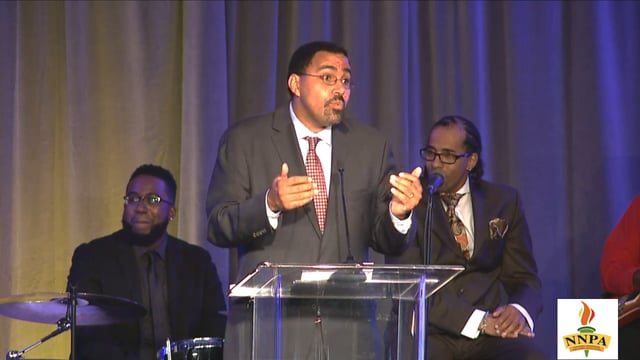
COMMENTARY: For Black Children, Attending School Is an Act of Racial Justice
 By Kayla Patrick, The Education Trust
By Kayla Patrick, The Education Trust
As a seemingly twisted way to ring in 2019, the Trump administration has sent a loud and clear message that it’s okay for educators and school leaders to keep Black children out of school buildings and exclude them from opportunities to learn. It may sound extreme, but that’s exactly what it means to rescind school discipline guidance that was put in place explicitly to ensure that Black children were not treated this way and discriminated against.
The current administration, however, wants us to believe that discrimination against Black children is a myth. It is not. It is the lived experience of too many, if not all Black children. In the 2015-16 school year, Black boys made up 8 percent of public school enrollment, but they were 25 percent of the boys suspended out of school. Black girls were 8 percent of enrollment, but 14 percent of the girls suspended out of school. While Black children are overrepresented in practices that exclude or remove students from school, White children are underrepresented. Such data are clear evidence that racism and bias often drive exclusionary practices. To ignore this is to preserve the status quo.
If the numbers aren’t enough to show that discrimination exists in American classrooms, studies have shown that Black children do not misbehave more than their White peers, rather they are punished more. In fact, Black students are more likely than their White peers to receive a disciplinary action for a discretionary offense like talking back, violating a dress code, or being defiant. Black children are also more likely to be suspended out of school for their first offense. Clear, appropriate, and consistent consequences and educator training — as the guidance calls for — helps to eliminate the discrimination and bias that fuel the disproportionate punishment of Black children.
This administration would also have us believe that discipline disparities are a result of poverty, arguing that experiencing childhood trauma and living in distressed communities are to blame. But poverty cannot explain away the discipline disparities: Studies have shown that when taking a student’s economic background into account, Black children are still more likely to be suspended than students of other races. And let’s not forget that poverty, too, is a result of deliberate policy choices that leave Black children isolated in neighborhoods with little resources — including the longstanding impact of discriminatory housing policies such as redlining. These are choices that this administration has done nothing to address.
What many (including this administration) fail to realize is that there is a difference between discipline and punishment. Suspensions and expulsions don’t teach. They punish. And far too often, adults decide that Black children are not worthy of teaching and second chances. Excluding students from classrooms does not help them to correct the mistakes that children inevitably make. It also has negative long-term consequences. These negative outcomes include poor academic performance, lower levels of engagement, leaving school, and increased likelihood of involvement with the criminal justice system.
Unfortunately, attempts to exclude Black children from educational opportunities are not new. America has a rich history of locking Black children out of the classroom. This list includes anti-literacy laws, past and current resistance to school desegregation, lack of access to well-resourced schools, school based arrests, poor course access, enormous higher education costs, and unjust exclusionary policies. Every barrier and trick in the book has been used to limit the education of Black children. The removal of the discipline guidance is just the latest.
Rescinding the guidance is a reminder to those fighting for educational equity: For Black children, simply attending school is an act of protest, and learning and excelling while there is an act of racial justice. Every time a Black child is sent home for a minor offense, they are sent the message that they are unwanted or don’t belong. But Black children do belong, and they deserve to be safe, included, and to have access to a quality education. Despite the current administration’s actions, this is the message that advocates must make clear at the beginning of 2019 — and every year hereafter.
It’s up to us as advocates for educational justice to ensure that schools do not illegally discriminate against Black children. Encourage school leaders to commit to ongoing racial bias training; require culturally sustaining classroom management strategies; examine their school and district data to help determine if race and bias are driving who gets punished; adopt clear, fair, and transparent consequences; and eliminate school exclusion for discretionary non-violent offenses.
For more, watch John B. King Jr. break down how we can break the school-to-prison pipeline.


 Do state plans for implementing the Every Student Succeeds Act do enough to shine a spotlight on historically disadvantaged groups of students—and do they give schools the tools they need to improve outcomes for those children?
Do state plans for implementing the Every Student Succeeds Act do enough to shine a spotlight on historically disadvantaged groups of students—and do they give schools the tools they need to improve outcomes for those children?


 The Council of Urban Boards of Education (CUBE) has been at the forefront in helping urban school districts in their work to close the achievement gap, raise high school graduation rates, provide intervention services to academically struggling students, and create broad-based school programs to support students who live in poverty or other circumstances that create obstacles to learning.
The Council of Urban Boards of Education (CUBE) has been at the forefront in helping urban school districts in their work to close the achievement gap, raise high school graduation rates, provide intervention services to academically struggling students, and create broad-based school programs to support students who live in poverty or other circumstances that create obstacles to learning. Join us at the 50th Annual CUBE Conference, September 28-30 in New Orleans, Louisiana. The conference is a dynamic forum for school board members to examine and discuss strategies, current trends, research, and best practices that are positively impacting the educational outcomes of academically and economically disadvantaged students. Keynote speakers include former U.S. Department of Education Secretary (under President Barack Obama) and President and CEO of Ed Trust, John B. King, Jr.; and acclaimed Spoken Word Poet and Award-Winning Educator Clint Smith.
Join us at the 50th Annual CUBE Conference, September 28-30 in New Orleans, Louisiana. The conference is a dynamic forum for school board members to examine and discuss strategies, current trends, research, and best practices that are positively impacting the educational outcomes of academically and economically disadvantaged students. Keynote speakers include former U.S. Department of Education Secretary (under President Barack Obama) and President and CEO of Ed Trust, John B. King, Jr.; and acclaimed Spoken Word Poet and Award-Winning Educator Clint Smith.